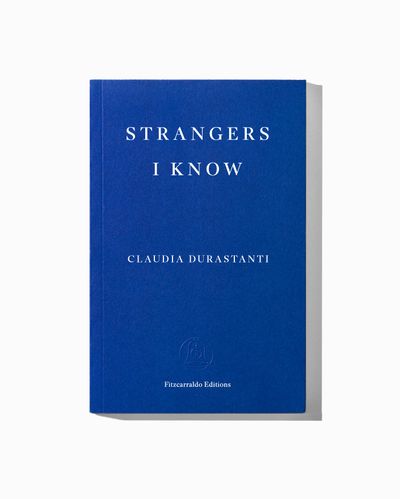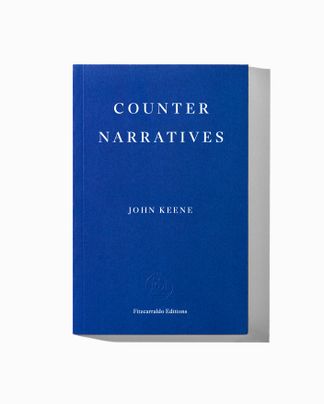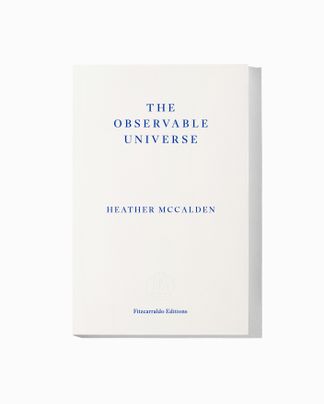Every family has its own mythology, but in this family none of the myths match up. Claudia’s mother says she met her husband when she stopped him from jumping off a bridge. Her father says it happened when he saved her from an attempted robbery. Both parents are deaf but couldn’t be more different. Into this unlikely yet somehow inevitable union, our narrator is born. She comes of age in this strange, and increasingly estranged, household split between a small village in southern Italy and New York City. Without even sign language in common – her parents have not bothered to teach her – family communications are rife with misinterpretations. An outsider in every way, she longs for a freedom she’s not even sure exists. Only books and punk rock – and a tumultuous relationship – begin to show her the way to create her own mythology, to construct her own version of the story of her life. Kinetic, daring and strikingly original, Strangers I Know is a funny and profound portrait of an unconventional family that makes us look anew at how language shapes our understanding of ourselves.

Strangers I Know
Translated by Elizabeth Harris
French paperback with flaps, 272 pages
Published 19 January 2022
Strangers I Know
Translated by Elizabeth Harris
MYTHOLOGY
My mother and father met the day he tried to jump off the Sisto Bridge in Trastevere. It was a good place to jump – he was a fine swimmer, but once he hit the water, he’d be paralyzed, and the Tiber back then was already toxic and green.
My mother always walked liked it was raining, head down, shoulders hunched, especially when she was alone, but that day she stopped on the bridge, and saw a boy straddling the parapet wall. She came closer, laid her hand on his shoulder, to pull him back; maybe they scuffled. She persuaded him to calm down, breathe slowly, then they took a walk through the city, got drunk, and wound up at a hotel with stiff sheets that stank of ammonia. Before dawn, my mother put her clothes on and left. She had to get back to her boarding school and my father seemed so restless; she didn’t even shake his shoulder to let him know she was going.
The next day, she stepped outside the school with her girlfriends and saw him leaning against a car, his arms crossed, and right then, she knew she was doomed. I’ve always envied her mystical, woeful expression when she speaks of him at that moment; I’ve always been jealous of that apocalypse.
That day in front of her school, my father wore tapered jeans, a blue shirt with the sleeves rolled up, and he was smoking a Marlboro Red – he smoked two packs a day.
He’d come to pick her up in front of the state institute on Via Nomentana, and that’s when their life together began.
‘How did he manage to find me?’ she’d say. When I was little and she told me this story, she transformed my father into a mysterious wizard who could capture us anytime, anywhere, and I hugged her tight and didn’t answer and wondered what it was like to be desired that way by a man.
Then I grew up and started pointing out the obvious: ‘There was only one school for people like you in Rome. It couldn’t have been all that hard.’ She’d nod, then shake her head: he found her because he had to. Though their marriage ended, she never regretted pulling him off that bridge: he was deaf, like her, and their relationship held something closer, something deeper, than love.
*
My father and mother met the day he tried to save her from an assault in front of the Trastevere station.
He’d stopped to buy cigarettes and was about to get back in his car when he noticed the sudden, erratic movements of two thieves; they were kicking a girl, trying to yank away her purse. After he threatened them and scared them off, he stopped to help my mother and persuaded her to go back home with him to wash up. He was still living with his parents: when they saw this girl – barely out of her teens, her dark skin, her hair wet from the shower – they thought she was an orphan.
At age twenty, my mother had a wide, bawdy smile, smoker’s teeth, straight black hair to her shoulders, not a good look on anyone; sometimes she pulled her hair back with a tortoiseshell barrette. She lived at boarding school but often stayed out at night; she studied sporadically. She took small jobs to supplement what her parents sent from America, but she rarely showed up to work on time.
From the day he appeared, they started going out: they spoke the same language composed of gasps and words pronounced too loudly, but it was their behavior that drew looks on the street. They shoved past people as they walked, not turning to apologize, exuding difference: he had light brown hair, full lips, aristocratic features, she barely came to his shoulder and seemed to have stepped out of some guerrilla squad.
Back then, my father would pop up out of nowhere: often, when she’d be leaving to see her family in America or disappearing for a few days, or much later, when they’d separated, and he showed up at the departures terminal at the exact right moment, or else appeared behind a glass door, or stepped off an elevator, or slammed the car door so she’d look up a moment.
She recognized him from his slouched posture, the flicker of his cigarette. He’d find her like a wounded, bleeding hunter looking for his prey, when he has no other senses to rely on and must trust his own raging instincts. My father and mother divorced in 1990. They’ve seen each other only a few times since, but both will start their story off by saying they saved the other’s life.
(…)
‘Formally innovative and emotionally complex, this novel explores themes of communication, family, and belonging with exceptional insight. Durastanti, celebrated in Italy for her intelligent voice and her hybrid perspective, speaks to all who are outside and in-between. Strangers I Know, in a bracing translation by Elizabeth Harris, is stunning.’
— Jhumpa Lahiri, author of Whereabouts
‘Brave and deeply felt…. Here the novel is not only a medium of illumination, but also a buoy cast into the dark waters of memory, imagination, and boldly embodied questions. In other words, it is my favourite kind of writing, the kind that not only tells of the world – but burrows through it, alive.’
— Ocean Vuong, author of On Earth We’re Briefly Gorgeous
‘Claudia Durastanti’s writing is lyrical and sharp, underpinned with a searching gaze that turns the everyday into something darkly beautiful. Every page feels totally, absorbingly alive.’
— Sophie Mackintosh, author of The Water Cure
‘A fluid meditation on the instability of the linguistic and cultural myths we build our identities around. I loved the language; I loved the tenor of it. It captivated me.’
— Jo Hamya, author of Three Rooms
‘The complex, overflowing, intelligent self of Durastanti collects the fragments of that family life that has moved in sparks between Italy and the United States and makes it a new mythology, a new, daring and dazzling look at what has been.’
— Giulia Caminito, Corriere Della Sera
‘[Durastanti’s] inventive approach yields touching portraits of the characters, while respecting their ultimate unknowability.’
— New Yorker
‘Fans of Jenny Offill and Rachel Cusk will enjoy this unusual work of personal mythology.’
— Kirkus Reviews
‘In this moving family portrait [Durastanti] depicts personal calamities and failings with frankness, but the glimpses of violence and loneliness throughout shimmer with a sense of acceptance and the “useless power of forgiveness”.’
— Vilma De Gasperin, TLS
‘There is much exquisite characterisation in Strangers I Know by Durastanti, as well as barbed and profound musings on the class system.’
— Buzz Magazine
‘Durastanti is a superb writer whose text is fluid, descriptions taut and original, whose whole novel gradually unfolds into a web of associations, possibilities and interwoven stories within stories that highlight how families, distant and near, misunderstand, confuse and love each other.’
— Rupert Loydell, International Times
‘This heterodox book breaks many literary conventions.… Reading the book has an emotionally hypnotic effect, and despite its starts and stops, its digressions and regressions, it hardly matters whether it is a true story.’
— Joseph Peschel, Brooklyn Rail
‘Strangers I Know is a lyrical, hybrid form of novel and memoir … an amalgamation of the many lives Durastanti has lived, as well as the nostalgia and disillusionment she has developed with each new migration.’
— Clara Hillis, The Oxonian Review
‘Strangers I Know is a flame held up to the inexpressible self.’
— Ploughshares
‘This highly engaging novel gives us much to consider; its beautiful prose is both provocative and enthralling – an ideal mechanism for focussing not only on how childhood defines adulthood, but how language, its meaning and its implication, really defines how we choose to view ourselves.’
— Caroline Spalding, Lancashire Times
‘In a text like Strangers I Know, characters emerge like luminous crests in a map dotted with gaps, making the land disappear and fold onto itself. The force of this book is transformative.’
— Review 31
Claudia Durastanti is the author of four critically acclaimed novels. A former Italian Fellow in Literature at the American Academy of Rome, she is a co-founder of the Italian Literature Festival in London. She writes for several literary supplements and is on the board of the Turin Book Fair. She is the Italian translator of Joshua Cohen, Donna Haraway, Ocean Vuong, and the most recent edition of The Great Gatsby. Strangers I Know, a finalist for the Premio Strega in 2019, has been translated into twenty-one languages. She currently lives in Rome.
Elizabeth Harris’s translations from Italian include works by Mario Rigoni Stern, Giulio Mozzi, Antonio Tabucchi, and Andrea Bajani. For her various translations of Tabucchi, she has received an NEA Translation Fellowship, the Italian Prose in Translation Award, and the National Translation Award for Prose. She lives in Wisconsin.




